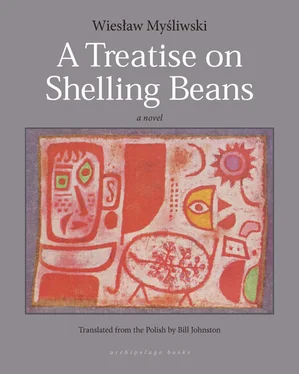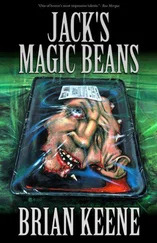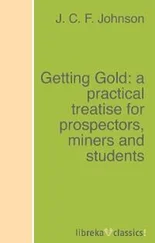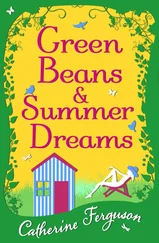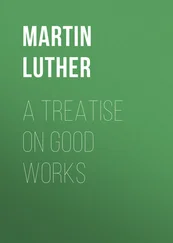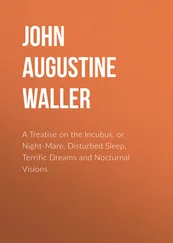What kind do you prefer, heather or honey-dew? The honey-dew is from conifers, not deciduous trees, it’s virtually black, it’s much better. In that case I’ll give you a jar of each. My favorite is buckwheat honey. There used to be a guy here grew a lot of buckwheat. Three days ago I repainted his nameplate. The buckwheat hadn’t even begun to flower and already he’d be putting up hives in it. I used to go watch him collecting honey from those hives of his. He’d be wearing a hood with a net over his face, and I’d just be there. And you won’t believe it, but I never got stung by a bee. They’d land on me, but they never did a thing. He couldn’t get over it. You’re a strange kid, that you are. I’m the beekeeper here … Go bring a pot. And he’d pour me some honey straight from the hive.
These days, who’d grow buckwheat around here, and where? You saw for yourself, there’s the lake they made, the cabins around the lake, and the woods. The woods were always there. They’re the only thing that was there then and is here now. Except that the woods were mostly on this side. Now they’ve spread to the other side, where the fields used to be. If you don’t hold woods back they’ll grow everywhere, into your yard. They overgrew where the farmyards used to be. When I say the other side, I mean the other side of the Rutka. The Rutka? That was the river that used to run through here, I told you how it split the village in two. How could they have made an artificial lake if there hadn’t been a river? The name comes from ruta , rue, not from ruda , iron ore. Do you know what rue is? You’re not the only one. Here in the cabins hardly anyone knows anything about herbs. At most mint, chamomile. They don’t know their trees, can’t tell an oak from a beech. Not to even mention hornbeams, sycamores. They can’t tell rye from wheat, wheat from barley. They call it all grain. I wonder if they’d even recognize millet. I don’t see many people growing millet these days.
Rue was used to treat different illnesses, on its own or with other herbs. They used it for eyes, for nerves, cuts and bruises, to prevent infection. You could drink it or make a compress. It could break spells. And most important of all, young women wove their garlands out of rue. It was like a magnet for young men. A lot of it grew around here, maybe that’s where the Rutka got its name? You can’t imagine what that river was like. It wasn’t especially big, rivers that run through villages never are. It came down a broad valley where there were meadows, then after the valley the fields began. It was wider at some points, narrower in others. In some places, when it hadn’t rained for a long time you could get across by stepping from one rock to another. When you stood at the edge of the valley and the sun would come out from behind the clouds, it looked like the Rutka was flowing across the entire width of the valley. Course, there were times it actually was that wide, when the ice melted, or when it just kept raining and raining. At those times you wouldn’t believe it was the same Rutka, it was so wild. It didn’t just cover the valley, the fields flooded as well. Anyone that lived close to the river had to move to higher ground. At those times people swore revenge on the Rutka, they wept over it. But then the waters would fall and it’d go back to being calm and good-natured. It would flow in its leisurely way. You could throw a stick into the water and walk alongside on the bank to see who was faster, you or the Rutka. Even if you only walked slowly, you’d always win. It twisted and turned, and in the places where it meandered it got overgrown with sweet rush, bulrushes, water lilies, white lotuses. When it all bloomed you can’t imagine what it was like. Or if you could only have heard the nightingales in May.
It wasn’t all shallow. Most places it was shallow. But it had its deep moments too. One of them was the deepest of all. People went there to drown themselves. Mostly young folks, when their parents wouldn’t agree to them getting married. They said most of the ones that had drowned there, it was for that reason. That people had always gone there to drown themselves, because that was where it was deepest. Though they did it for different reasons. And not just young people. Though they didn’t always choose drowning, some people hung themselves. And the Rutka just flowed on.
You might find it hard to believe, but to me it seemed the biggest river on earth. I was even convinced that all rivers were called Rutka and that they all came from the Rutka, like from a single mother. I’d already started at school but I still couldn’t believe there were much bigger rivers in the world, and that they each had their own name.
We had a boat. Sometimes I’d drag it into the densest rushes, everyone would be calling me, mother, father, but I wouldn’t answer. I’d just lie there in the bottom of the boat feeling like I was nowhere at all. And if you were to ask me whether I’d ever been happy, it was only ever then. You’d rather not ask me that? I understand. Or I’d take the boat out into the middle of the stream, lie down in it and float and float, and the river would carry me. What do you think, do rivers like that disappear? I really don’t know. Sometimes I go and stand down by the lake and look out there wondering where it must flow now. And you know, one time I managed to make out one of its banks. Which one? To know that, I’d have to have known which one I was standing on.
I couldn’t tell you where it came from or where it finished up. Back then no one went that far. It was scary to walk such a distance, the woods in these parts stretch on and on. Nowadays I don’t go walking that far either, because why would I. Besides, you go into the woods on this side or the other, and right by the edge you have everything you could need. Blueberries, wild strawberries, blackberries, mushrooms. Not at this time of year, of course. You’re too late for that. Now there’s only cranberries. But you’d need to wait till the frosts set in, because they mostly grow in the bogs. The bogs aren’t far from here. I could give you a jug, you could go pick yourself some. Cranberries are delicious with pâté. Especially when you add pears as well, and if it’s pâté made from hare.
I don’t go picking. I don’t have time, I have to mind things here. Now for example, in the off-season, aside from me and the dogs, there’s not a soul here. Once in a while someone’ll come by to check on their cabin. Though in fact they don’t need to. Everyone knows that it’ll all be OK. It couldn’t not be, because I’m here looking after things. They’ve had many an opportunity to see that for themselves. But I’ve no right to stop them if they want to come and see what’s what. They belong to them. But that’s usually in the morning. This time of day no one’s likely to show up. At this time nothing happens. And dusk is starting to fall a lot earlier. A month ago I wouldn’t have needed to turn on the lights. I could see the letters perfectly well, even the tiniest ones. And I wouldn’t have needed my glasses. Whereas now, like you saw, it’s dusk, and there isn’t even the faintest ripple on the lake. You’d be forgiven for thinking the water had hardened into solid ground. Especially on a day like today, when there’s no wind, someone might imagine they could cross from one shore to the other without getting their feet wet.
So you’re staying in Mr. Robert’s cabin? I don’t think you arrived in the night, I would have heard you. I didn’t sleep at all in the night, I’d have heard. In the night the faintest sound carries across the lake. I only got to sleep in the morning. The dawn was already starting to break, I looked out the window, but you weren’t there then. After that I dropped off, I don’t even know when. The fog held you up on the way? We didn’t have any fog here. True, in the fall you get fog that’s so dense you can barely drive through it. You’re driving along and all of a sudden there’s this white wall.
Читать дальше
